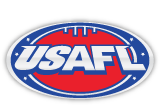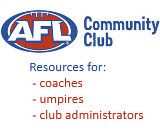IN THE sprawling grounds of a 17th century baroque palace and within staggering distance of the biggest beer garden in the world, bemused Germans gather to watch a group of men kick an oval ball shipped in from a country 16,000 kilometres away.
Their jumpers are from North Melbourne, the heckling is equal parts German and Strine and the after-training refreshments come in the form of litre glasses of Munich's finest at the 8000-seat venue next door.
The park is the former playground of Bavarian royalty and aside from a small group of men kicking an Australian football, usually serves as the spot for dog walkers, young lovers, old drinkers and Germans practising their preferred religion of soccer.
It is an unlikely birthplace for Australian rules in Germany. But it was here that the seeds of the sport were sown 15 years ago when a small group of Australian expatriates decided to introduce their German friends to the game. The result was the Munich Kangaroos, the country's first AFL team. Soon they had discovered a second team in Frankfurt and a league was born.
It is a scenario being played out across Europe - in snowy fields in Sweden, in cricket grounds in Vienna, parks in Zagreb and in below-freezing temperatures in Denmark's north.
Against the odds, Australian football has gradually taken root in Europe. There are now six teams in the German league, nine in Sweden, seven in France, six in Denmark and leagues or teams in Belgium, Croatia, Czechoslovakia and Italy.
In a place where AFL barely registers on the sporting barometer - and is usually regarded as a barbaric curiosity when it does - grassroots teams are surviving through a combination of determination and ingenuity.
Equipment is begged and borrowed, friends and relatives are recruited and venues are found in the unlikeliest of places. Germany's grand final last year was played on two side-by-side soccer fields in Munich.
But now there are serious moves towards pushing the sport into the European consciousness. This month, national teams met in Zagreb for a nine-a-side European Cup, followed by a two-day summit on the game in Europe.
It was the first tentative step towards a European league, and it came in spite of (or because of) what they see as years of ambivalence by an uninterested AFL.
''Since 1995 we have been asking the AFL for support on a regular basis, mostly concerning material. Apart from a few footballs, there was basically no support," said Malte Schudlich, president of the German league.
''We would be in exactly the same situation today if we would have never had any contact with the AFL.''
His frustration is echoed by other clubs, which have struggled with funding, sponsorship and publicity. It is this bizarre situation where American football could emerge as the unlikely saviour, at least in Germany, after the US sporting body offered to merge with the local AFL league.
American football in Germany has become a multimillion-dollar business with professional status and televised games. It gets nothing from a merger, but Germany's Australian Football League gets office space, administration and marketing support. The strength and size of its American counterpart also allows it to register Australian rules as an official sport in Germany, gaining government grants, National Olympic Committee recognition and coaching certification.
"They've got the money and they said they were happy to take us on board," Schudlich said. "They approached us. It doesn't mean we have to do anything for American football. They are just like an umbrella. They're pretty laid back. They said, 'We're not going to interfere with your sport'."
European Federation of American Football head Robert Huber said he sympathised with his Australian rules counterparts and his organisation's offer of help was a "romantic move".
The Swedish league has decided to look at a similar arrangement with rugby, which would also give it official status, lobbying strength and access to government funds.
The decision comes amid a realisation that the help the leagues want is unlikely to come from Australia. "In the end, if you want to get football growing here in Germany then we need to get our funds in Germany. We can't depend on a country that's far, far away, "Schudlich said. "If we want to survive, we have to be self-sufficient.''
Finances are tight and most clubs can't afford to travel to the AFL's nod to overseas teams, the International Cup, held in Melbourne every three years. And even if they could, they don't see the publicity benefits. So they concentrate their efforts back home, occasionally resorting to alliances with AFL teams in return for clothing and coaching tools.
In May, Swedish team Karlstad Dragons forged links with West Coast, changing their name to the Karlstad Eagles. The first benefit of the deal, long-sleeved jumpers, arrived last week.
Club president Jimmy Ljunggren was impressed by the foresight in sending cold-weather kit: "We can train all year round in these. We just need a couple of snow ploughs to clear the track in winter."
Fremantle has also agreed to help out the struggling Hamburg team. The German city's fledgling team, which had been playing for two years without a win, saw the alliance as a good omen after breaking their duck in the first game they played in the new jumpers.
But while finances remain a hurdle to establishing the game, the biggest problem is still one of perception. Coverage of the game in Europe is usually restricted to TV highlights packages, which has created the widespread view of the sport as reckless.
"Fast, hard and dangerous - that's Australian football," began a recent news story about the Hamburg team. Pareigis said he had similar reservations about the sport until he was introduced to it when he moved from Germany to Sweden six years ago. On his first day of language classes, he was put next to an Australian who sung its praises. That classmate was Ricky Nolan, son of North Melbourne legend Mick Nolan, the ''Galloping Gasometer''.
"I helped him a bit with his Swedish and he talked me into Aussie rules," Pareigis said. "I said, 'No, it's a rough sport where people jump each other in the backs with their knees and stuff'. He convinced me to give it a shot and I've been playing it since.
"If you talk to people on the street, no one knows what Australian rules football is. That makes recruiting a little more difficult."
But with each season, the sport is attracting more locals. Most of the teams now include only a handful of Australians, which Pareigis says shows the sport could have legs in Europe if given the right push.
"A lot of the German guys do like it because it's got that social aspect," said Munich Kangaroos coach David Mudge, who moved to Munich, fell in love with a German girl and decided to stay.
"I think the atmosphere is something the Germans just don't see in any other sport, to have this kind of social and sports thing combined. And we train in the park where the biggest beer garden in Germany is next door and we always go there afterwards and socialise.
"When you come over here, it's a bit of a culture shock. But when you join a footy team, once or twice a week it's like a little holiday back home,'' he said. "You go home for a couple of hours and talk the same lingo and play a game you played when you were a kid.
"And the German guys love that too. It's a fine balance. You've got to adapt a little bit to Germany. But on the other hand, the German guys like having that Australianism.
"Back home it's a little bit gung-ho, where guys will play with injuries and don't want to come off the ground. But in German sports, if you're feeling tired, you put your hand up and sub off. It takes a while to get used to that as a coach.
"But that's OK. We try to explain, and explain a few things in German as well. My German's not great but we try and relate it to soccer.
"And you know … with the German national team, the guys are extremely motivated. They're playing for their country and there's not many sports where you can turn up and play for a year or two and then make the national team. Actually, the most motivated guys in the whole league are the German guys."
Chris Gerlach, the half-German, half-Australian vice-captain of Munich, said the sport gave him an alternative to soccer.
He fell in love with it during regular visits to relatives in Perth while growing up and now provides the German commentary when AFL games from Australia are broadcast on pay TV.





